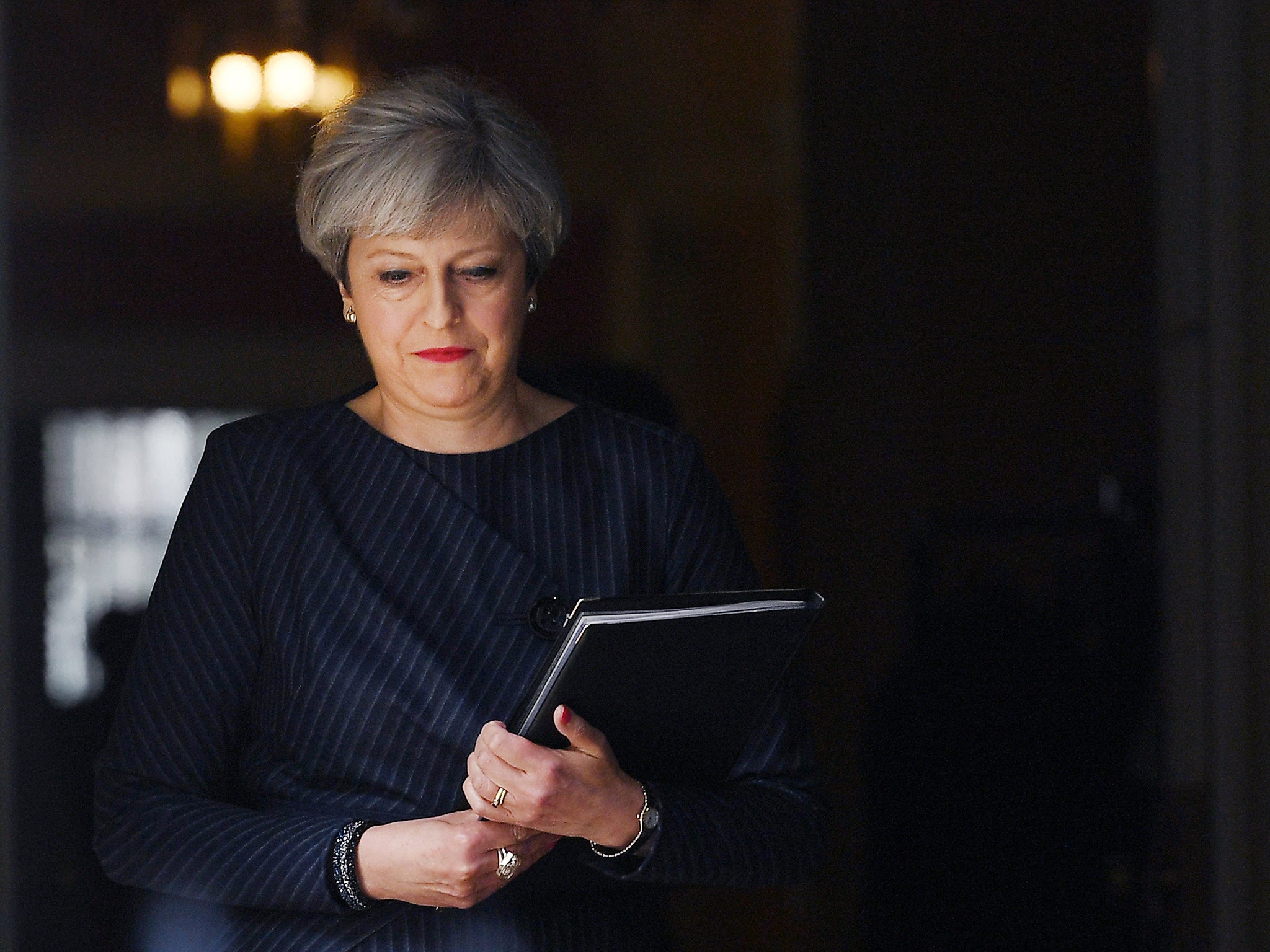This was supposed to be the Brexit election, but voters are refusing to follow Theresa May's lead
The Conservatives are trying desperately to turn the clock back to 18 April, but the risk is that this just looks like another Project Fear

Whatever happened to the Brexit election? When Theresa May explained her decision to go the polls, Britain’s withdrawal from the EU was not so much front and centre as all-embracing.
Her speech in Downing Street on 18 April was clear: an election was needed because opposition from other parties to the Government’s strategy “jeopardises the work we must do to prepare for Brexit at home and weakens the Government’s negotiating position in Europe.” She went on: “If we do not hold a general election now their political game-playing will continue".
The Prime Minister was at least partly right in her analysis. There can be no doubt that, for good or ill, the Brexit negotiations which begin later this month are central to the future of the UK. Few economic experts doubt that life outside the EU will be challenging even in the best-case scenario.
But some outcomes are worse than others, not least the “no deal” which May talks about so blithely. There is, therefore, an enormous imperative to make the best of the talks and to find a way to limit the damage that EU withdrawal will surely cause. Domestic policy on many fronts will have to be rethought – in some areas quite radically – as details of the Brexit deal begin to emerge.
And yet the startling truth about the last six weeks of campaigning is that Brexit has come nowhere close to dominating the political debate.

Not only that, but there appears to be scant evidence that the majority of voters see it as a particularly motivating factor in choosing which party to vote for. For the Liberal Democrats, especially, that has come as a nasty surprise; Tim Farron’s worthy promise to push for a second referendum on the terms of Britain’s withdrawal has turned out to be one of the campaign’s biggest damp squibs.
For Labour, by contrast, moving the discourse away from Brexit has turned out to be stunningly effective. The party’s bold manifesto – promising a programme of renationalisation, protection for pensions, tax rises for big business and the rich, extra police officers and the scrapping of tuition fees – received popular acclaim.
Swathes of the population, it appears, are as unhappy with the status quo as they were before last summer’s referendum. It would be ironic if the same forces which led in part to victory for the Leave camp were to then put Jeremy Corbyn into Downing Street.
To a degree, May should have foreseen all this. There is little that any of the parties can actually say, banalities aside, about how the Brexit talks are likely to pan out, or how the UK will be affected by, and react to, the final exit terms.
Returning again and again to inane mantras about the need for a “strong and stable” government or Brexit meaning Brexit was never going to be enough and on other key issues, including health, education and pensions, the Conservative’s manifesto did not capture the imagination in the way Labour’s had.
Yet the Prime Minister has at key moments made matters worse for herself. The confusion and bluster over the party’s social care plans proved disastrous, while May’s unwillingness to appear in the leaders’ TV debate gave lie to the perception of her as a strong and stable leader. Corbyn has had bad moments, but compared to the Prime Minister he has looked like a natural on the campaign trail.
As we enter the last week of the campaign the Conservatives are trying desperately to turn the clock back to 18 April, urging voters to refocus on Brexit in the hope that May can still win the landslide which once felt inevitable. The trouble for the Prime Minister is that this looks like another Project Fear, based largely around personal attacks on her opponents; to many, it compares unfavourably to Corbyn’s multi-faceted (if, perhaps, economically naive) appeal to a more hopeful future.
Yet for whichever party triumphs next week, there is only one obvious certainty: Brexit will be the utterly dominant matter on the agenda for the entirety of the next parliament.
Talks will be tortuous and the fallout from whatever deal is ultimately struck with the EU will impact on domestic policy on all fronts. The parties may have little to tell us on the subject now; but we shouldn’t forget that it is their likely approaches to Brexit which will affect us more than anything else over the next five years.
Join our commenting forum
Join thought-provoking conversations, follow other Independent readers and see their replies
Comments
Bookmark popover
Removed from bookmarks